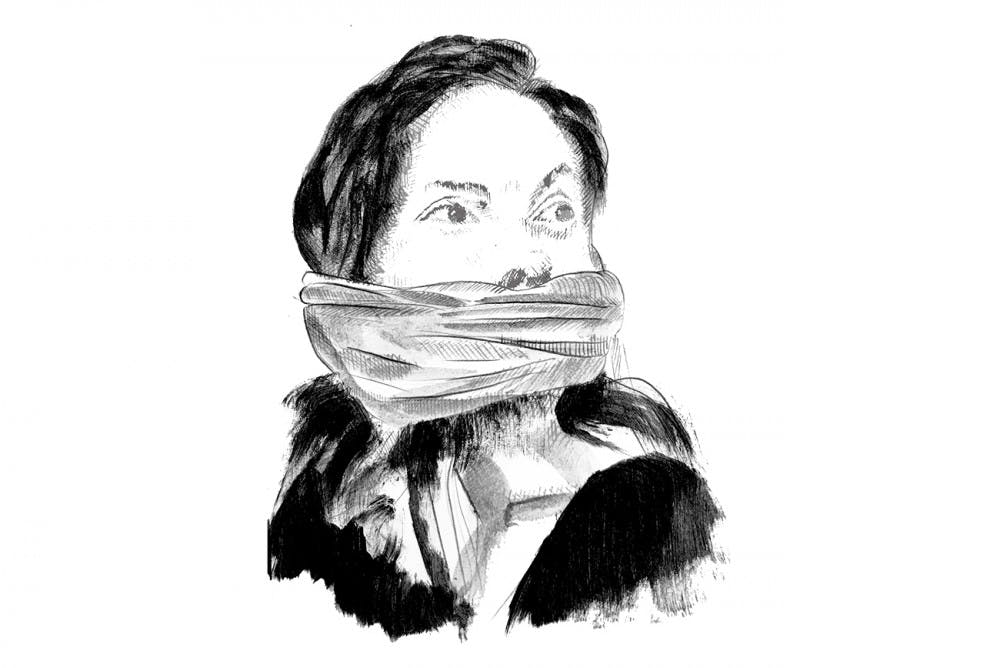With the recent accusations made against public figures, sexual assault has come to the forefront of America’s consciousness, particularly the actions surrounding reporting an assault.
At Auburn, this issue is particularly troubling. In 2017, there were only 17 instances of rape and forcible fondling reported by Auburn students, but the AAU Climate Survey on Sexual Assault and Sexual Misconduct from 2015 reports that 11.7 percent of students at college experience nonconsensual sexual contact — what would be roughly 3,484 students at Auburn.
What is causing this apparent lack of reporting assault?
A California professor, Christine Blasey Ford, recently alleged Kavanaugh sexually assaulted her when they were in high school. The alleged assault happened around 30 years ago.
Why did she wait so long to report?
Survivors of sexual assault often face the fear of not being believed, that when they do come forward they will be derided and ridiculed for not remembering certain details, for wearing a dress that was “too short” or a wealth of other circumstances that people use to place blame on the victim.
That’s exactly what happened to Ford. A prosecutor hired by the Senate Judiciary Committee attempted to poke holes in her story. She has been questioned and ridiculed for her decision not to speak out earlier.
Let us be clear: It is a victim’s decision, and their decision alone, to tell others about their sexual assault and when they choose to do so.
These stories often have one underlying element — that of a power dynamic. These survivors endured abuse from their employers, celebrities and other people in positions of greater power or influence.
But more important than the position the abusers held was that those who suffered at their hands were left powerless — scared, shocked, embarrassed, ashamed, alone.
They could be fired from their job. They could be blacklisted from an industry or a field. Their career could be left in ruin.
And with younger victims, it’s complicated there, too.
Ford was just a young girl in high school, powerless at the time of her assault. She was younger than Kavanaugh and Mark Judge, the other man whom she said witnessed the assault.
Assaults involving youth are complicated. The levels of power are complex and can often involve drinking and partying. Young victims are often afraid to report the assault should their parents, the police or other authority figure find out they were breaking a rule, violating their curfew or drinking underage.
Furthermore, it is in one’s youth that it becomes apparent that there is an inherent power differential between men and women.
Women are constantly thinking of how to prevent assault, something most men do not instinctively do.
Women walk from place to place with their keys carefully placed between their fingers.
Women call someone when they walk to their car at night — just in case.
Women avoid parking garages, take self-defense classes, travel in groups. They check the backseats of their cars before they get in, avoid getting in elevators with just men, watch their drinks be poured and never leave their drinks unattended.
Women know assault can occur at any time or place and by anyone, including people they know.
Because of these skewed power dynamics and complicated situations, often times, while an assault can be traumatic, survivors may not fully recognize that what occurred to them was an assault.
“I was too drunk to say no” does not constitute a yes.
“He was just a little drunk and a little handsy” is not an excuse for an assault to occur.
“Her outfit was a little revealing,” but no outfit is asking for it, no matter how revealing. It cannot make attackers act against their own free will.
For many, it is not until they recount these traumatic experiences that they realize what happened was not right and they fully begin to understand what happened to them. Trauma is processed over a lifetime, so while it may be preferred to report an assault immediately after, it may not always be possible.
Reporting an assault gives a survivor dignity. It allows their voices to be heard and for them to take a stand against their abuser. There is no perfect time to report an assault, except for when the victim is ready to come forward.
If you are a survivor of sexual assault and need counseling, contact the Rape Counselors of East Alabama at 334-741-0707 or Safe Harbor at 334-844-7233.
If you have experienced a sexual assault or witnessed an assault occur and would like to report it you can report through the Title IX Office at aub.ie/titleix or the Auburn Police Division at 334-501-3100.
Do you like this story? The Plainsman doesn't accept money from tuition or student fees, and we don't charge a subscription fee. But you can donate to support The Plainsman.
The opinions of The Auburn Plainsman staff are restricted to articles marked "opinion" or "editorial." This editorial is the majority opinion of the Editorial Board and is the official opinion of the newspaper.
The opinions expressed in columns and letters represent the views and opinions of their individual authors, not the opinion of the newspaper. And often, those individual opinions conflict with the opinion of the newspaper.
These opinions do not necessarily reflect the Auburn University student body, faculty, administration or Board of Trustees.





